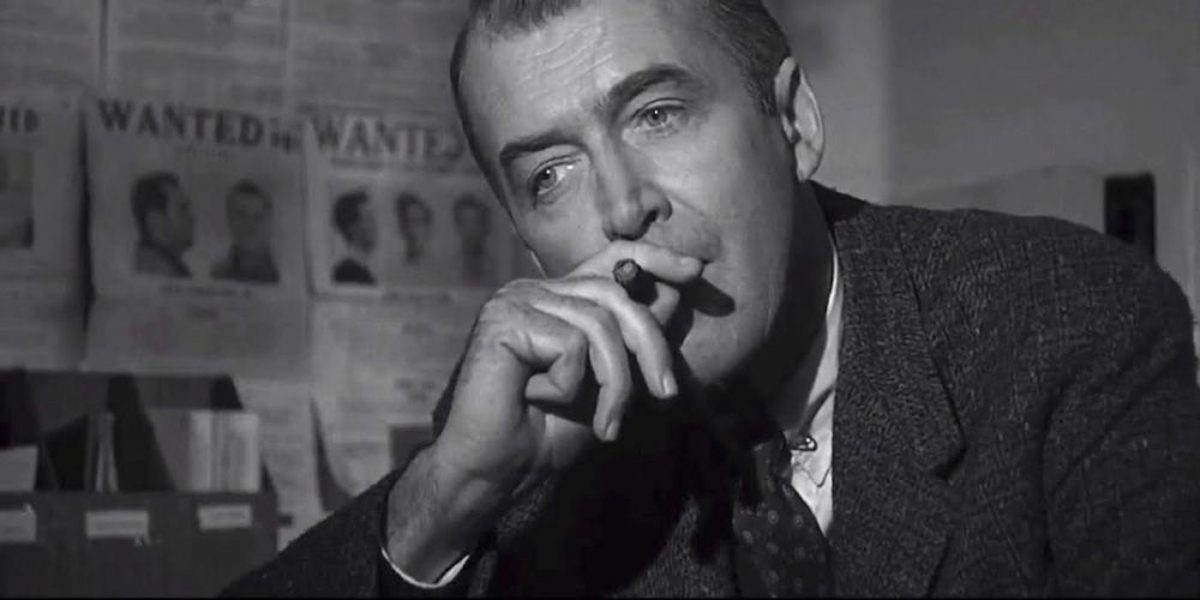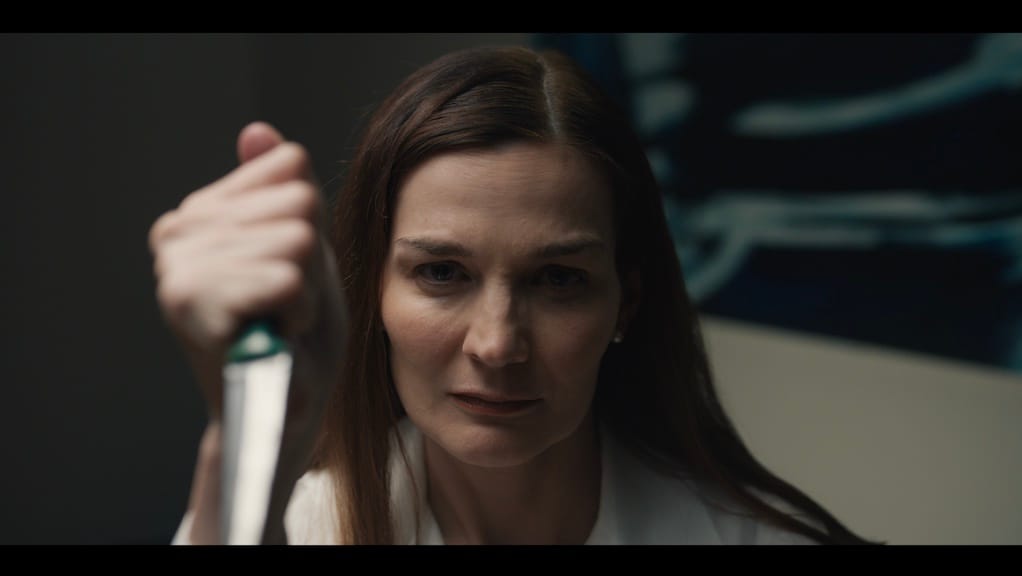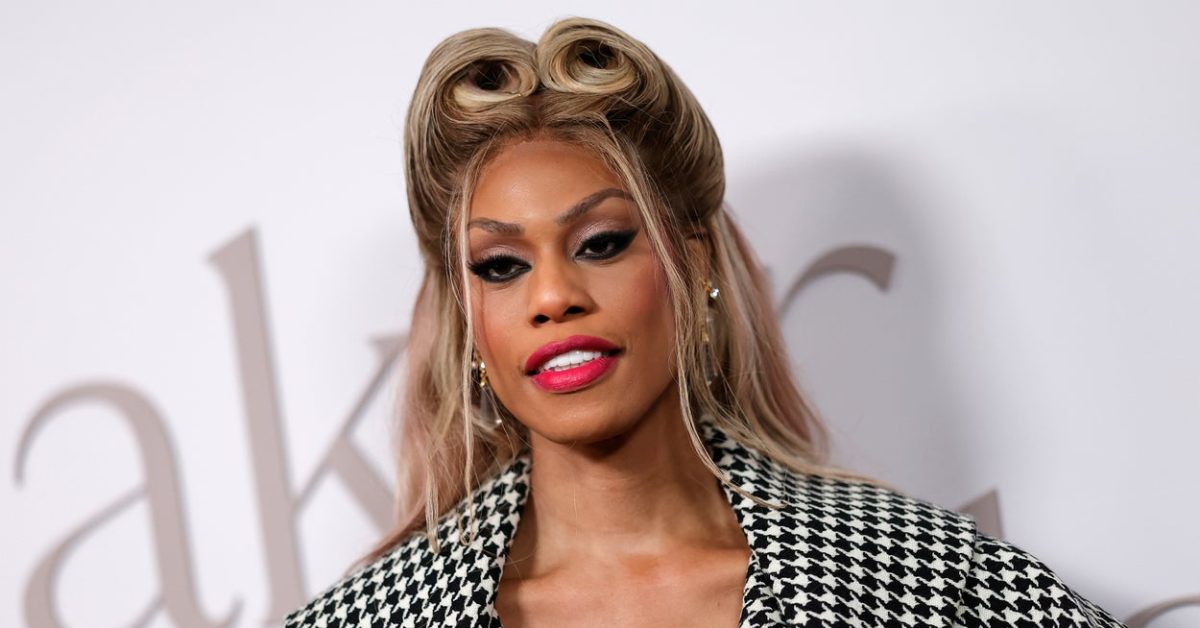
Jimmy Stewart Gave Us His Best Performance in This Courtroom Drama
Jun 6, 2023
The 1950s saw the already mythical Jimmy Stewart deliver some of his finest contributions to the cinema landscape. Idealized as a pillar of societal morality thanks to Mr. Smith Goes to Washington, It’s a Wonderful Life, and Harvey, Stewart’s presence in a film automatically evoked a sense of safety; here was someone who almost always played a good man. Flawed, certainly, but ultimately stalwart in his convictions. Stewart slowly expanded his cultural image during his late 40s and early 50s with roles that oozed moral ambiguity. In this regard, Alfred Hitchcock’s perverse masterpiece Vertigo tends to steal the spotlight. Yet director Otto Preminger’s Anatomy of a Murder, released one year after Vertigo, is just as deserving of praise. Stewart brings a cornucopia of layers to defense attorney Paul Biegler, who emerges from semi-retirement to tackle a complicated case that lights a fire in his razor-sharp mind. Biegler isn’t passionately pursuing justice like the characters emblematic of Stewart’s youth; he just likes a challenge.
COLLIDER VIDEO OF THE DAYSCROLL TO CONTINUE WITH CONTENT
RELATED: Jimmy Stewart Didn’t Win an Oscar for This Role, and Should Have
What Is ‘Anatomy of a Murder’ About?
Image via Columbia Pictures
Film historians and law practitioners consider Anatomy of a Murder one of the finest and more accurate courtroom dramas. James Stewart’s Biegler is a Michigan lawyer who lost his reelection campaign for district attorney and now leads a seemingly idyllic existence drinking whiskey, playing the piano, and fishing. When Laura Manion (Lee Remick) asks Biegler to represent her husband Frederick (Ben Gazzara), an army lieutenant charged with murder, Biegler isn’t interested. He’s content to handle the occasional divorce case and finds Frederick Manion “insolent and hostile,” which is the slam-dunk truth. Manion demonstrates no remorse for killing Barney Quill in retribution for Quill raping his wife. He just wants to avoid prison and shirk moral responsibility.
Biegler’s only tempted when his best friend and fellow former lawyer Parnell McCarthy (Arthur O’Connell) frames the case as a puzzle for Biegler to solve. Biegler loves practicing law so much that he reads US Supreme Court reports for fun, and he admits to missing the things most employees detest: detailed research, late nights, and old, dusty offices. In short, he’s a nerd. He’s also a man well acquainted with the world’s intrinsic corruption. As a lawyer, he learned that people are multifaceted and can’t be easily delineated into just “good or bad.” Jimmy Stewart rests the pendulum of Biegler’s virtue somewhere nebulous that’s neither nefarious nor upstanding — which makes for a more engaging, subversive character. The regal decency and defiant integrity Stewart displayed in Mr. Smith Goes to Washington are gone. Biegler doesn’t embark on a quest for the truth or believe he’s helping an innocent man escape incarceration. Determining how to win an otherwise unwinnable case motivates and delights him.
Jimmy Stewart’s Performance Plays Against Type
Jimmy Stewart conveys this calculated intelligence with a sneaky underhandedness that’s as brilliant as it is mildly uncomfortable. He puts Manion to the test before deciding to take his case, explaining that since there are witnesses to Manion’s murder of Quill, Manion needs to provide a “legal excuse, not [a] justification” for his actions. He plants the seed of thought in Manion’s mind and patiently waits for Manion’s response, smoking a cigar in silence. He observes Manion with glittering eyes, peeling away the other man’s layers with experienced astuteness. He smirks, sly but palpably satisfied, when Manion demonstrates restraint and intelligence. Ultimately, Manion says he was seized by “irresistible impulse,” an alternate term for the temporary insanity defense and an obvious lie. Biegler agrees to defend him because that’s new and interesting.
This tense, surprising exchange between Biegler and Manion relies on the art of subtlety and non-verbal performance, of which Stewart is an accomplished maestro. It also counts as witness coaching, which is against the law. Yet Stewart doesn’t play Biegler as malicious; just intrigued, and driven. Biegler dives into historical documents with glee, and Stewart displays a recognizably boyish excitement when he discovers a legal precedent for temporary insanity. The subtleties of the law captivate Biegler, but not necessarily the proper execution of said subtleties. Earlier in the film, McCarthy teasingly wondered if Biegler was “too pure…for the natural impurities of the law.” Clearly, Biegler has no qualms about testing the law’s durability despite his love for its intricacies.
Jimmy Stewart also infuses Biegler with humor: cracking jokes in the courtroom, delivering questions with a sly smirk, and objecting with increasingly passionate anger. Every move he makes is intentional: he’s as duplicitous as he is determined, using his “aw shucks” Jimmy Stewart drawl and country-boy demeanor to win over the witnesses, the judge (Joseph N. Welch), and the courtroom spectators. He’s argumentative, performative, mocking, witty, and disarming all in one. Biegler knows how to implant thoughts in the jury’s minds: he weaves his words into webs that bend them to his favor.
The prosecuting attorneys (Brooks West and George C. Scott, the latter delivering an extraordinary and Oscar-nominated performance) call him irresponsible and outrageous, and initially dismiss him as a fool. But Biegler knows how to sneak around the justice system through guile. For every moment he’s shouting like a cannonball, he’s making the spectators shriek with laughter. He knows exactly when to chuck a wry glance over his shoulder and when to intimidate a witness by looming into their personal space. He even manipulates the judge so subtly, it’s almost invisible. Biegler turns the trial into an entertaining theatrical presentation in the name of winning this particular case. The courtroom is a chess match and Biegler the chess master.
Jimmy Stewart Brings Nuance to ‘Anatomy of a Murder’
Image via Columbia Pictures
Intentionally or not, Jimmy Stewart subverts his public reputation by infusing Biegler’s antics with an intensity reminiscent of Mr. Smith Goes to Washington — except these speeches in Anatomy of a Murder are matured, refined, and sometimes sour. After all, Biegler knows that people are complicated and seems to have comfortably resolved himself to that fact.
Many moments reinforce Biegler’s complex nature. He isn’t anything close to cruel, selfish, or amoral in his daily life. He frets about McCarthy’s safety because his best friend is an alcoholic. Biegler’s complimentary to and snarky with his secretary Maida (Eve Arden), gentle with Quill’s daughter Mary Pilant (Kathryn Grant), and patiently empathetic to Laura Manion. Given his penchant for easy manipulation and how every decision affects the strength of his case, how genuine those latter two interactions are is up in the air. But this is Jimmy Stewart; the need to win his case can co-exist alongside the genuinely kind personality Biegler demonstrated at the film’s start.
In contrast to other law classics like 12 Angry Men, Anatomy of a Murder paints a portrait where cleverness triumphs over truth, justice, and the so-called American way. Morality is messy whether you’re a layperson or a lawyer: both the prosecutors and Biegler bend the rules in their respective attempts to win, and witnesses withhold information. Rather than indulge in an understandable fantasy about good prevailing at all costs, Anatomy reflects the judicial system’s unavoidable fallibility. “The truth” differs from person to person according to their own experiences and social biases. There are no clear answers, and there don’t need to be. Anatomy is one of the best courtroom dramas in no small part to Stewart operating at the top of his game in a film that, while critically praised and preserved by the US Film Registry, feels like it slips through the cracks when it comes to the amorphous, slippery intelligence of its leading man’s performance.
Publisher: Source link
Laverne Cox Reacts To Donald Trump’s Election Win
Laverne Cox discussed why she's considering leaving the US following Donald Trump's win in the 2024 election. In a new interview with Variety, Laverne said that she and several friends were considering a move: "We’re doing research on different cities…
Nov 14, 2024
Alexandra Daddario Reveals Postpartum Body 6 Days After Giving Birth
Alexandra Daddario Shares Candid Photo of Her Postpartum Body 6 Days After Giving BirthAlexandra Daddario is embracing new motherhood. Days after welcoming her first baby with husband Andrew Form, the White Lotus alum shared a photo of her postpartum body…
Nov 14, 2024
Fans Are Reacting To Rihanna's Recent Comments About Shifting From Her Music Career, And They're Worried To Say The Least
"She tryna tell yall that she not releasing any music baby," one user wrote.View Entire Post › Disclaimer: This story is auto-aggregated by a computer program and has not been created or edited by filmibee.Publisher: Source link
Nov 13, 2024
Gigi Hadid & Bradley Cooper Twin During Limitlessly Chic NYC Date
A twinning moment is born. Gigi Hadid and Bradley Cooper—who have been quietly linked since October 2023—proved their romance is as strong as ever as they stepped out in coordinating looks for a stroll in New York City on Nov.…
Nov 13, 2024











